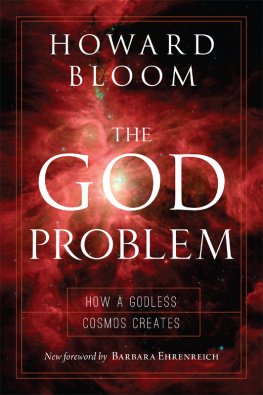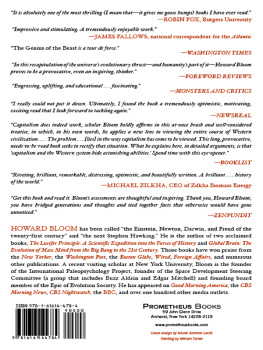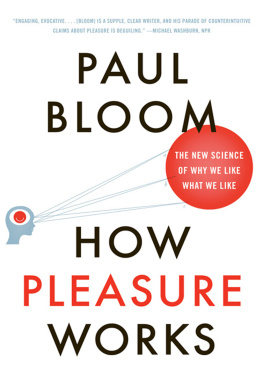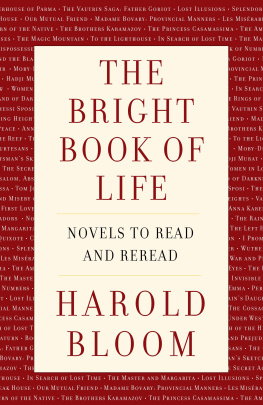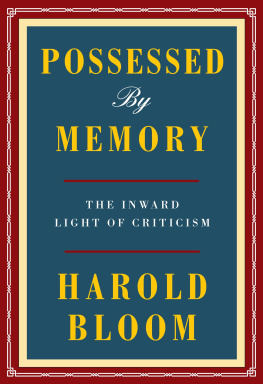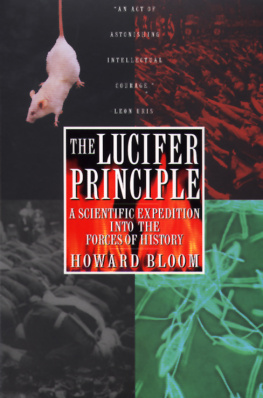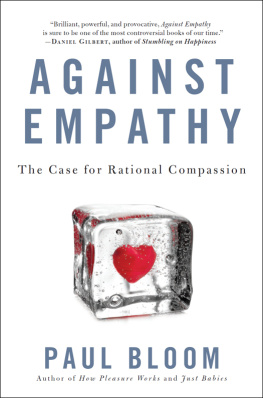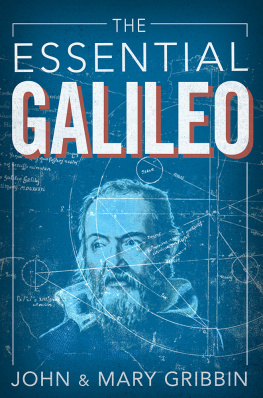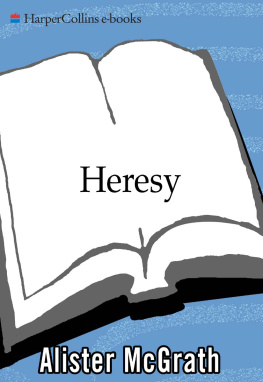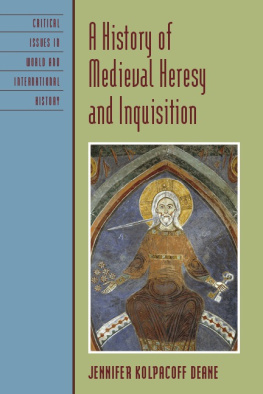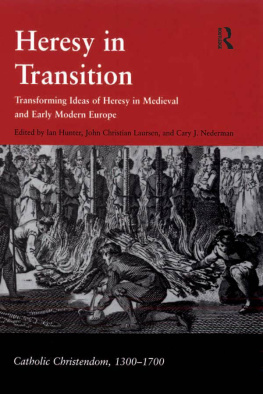
Terry Jean Rosenberg, Linda Regan, Jay Kenoff, Amir Siddiqui, Derek Enlander, David Tamm, T. J. Kincaid (The Amazing Atheist), Mark Sklawer, Antonino Vittorio DAccampo, Mathew Tombers, David Krebs, Bob Guccione Jr., Judy Rubin, and Jonathan Spiel.
Buzz Aldrin, Sabine Allaeys, Amara Angelica, Kate Archer, Jean-Paul Baquiast, Gary Barnhard, Jeremy Barry, Howard Baskind, Don Beck, Eshel ben-Jacob, Berel Berko, Bonnie Bernstein, the members of the Big Bang Tango Media Lab, Richard Block, Kimberly Blozie, Dennis Broe, James Burke, Alex Burns, Hank Campbell, Eric Carmen, Andrew Cohen, Peter Colen, Andrew Conrad, Troy Conrad, Suzie Conway, Ted Coons, A. J. Croce, Sus Cue-Sagman, Bruce Damer, Tom Dannheiser, Don Davis, Joseph Decuir, Jon DeLore, Nancy Ellis, Burt Feuerstein, Richard Foreman, Robin Fox, Karina Freudenthal, Peter Garretson, Danny Goldberg, Raghavan Gopalaswami, Jonathan Gordon, Chris Grayson, Noelle Pollet Greco, Gustav Grob, Dan Hancock, Deena Kristi Hays, Charles Hope, Mark Hopkins, Feng Hsu, Katherine Hulit, Ginger Ingalls, Nat Irvin, Joel Isaacson, Pamela James, Rob Jacobson, ShyAnn Jie, Darwin Marcus Johnson, Michael Johnson, Pascal Jouxtel, Pierre Jovanovic, Elizabeth Gallager Kennick, Bob Krone, Leonard Kuker, Rene Kuker, Pavel Kurakin, Jonathan Kurtz, Jon Labore, Mark Lamonica, Ida Langsam, Mike Levine, Henry Levy, Steven Johnson Leyba, David Livingston, Lisa Lyons, Jordan Macleod, Ephraim Mann, Rhonda Markowitz, Mark Marshall, Terry Martin, Mara McCann, Rob McConnell, Chris McCulloch, David McFadzean, Michael Mendizza, Suzie Dove Miles, Edgar Mitchell, Steven L. Mitchell, Jonathan Moorehead, George Noory, Ghanem Nuseibeh, Richard ONeill, Yuri Ozhigov, Nando Pelusi, Kaja Perina, Stephanie Phelan, Daniel Pinchbeck, Grace Piper, Ian Punnett, Stephanie Rooker, Jeff Rude, Linda Diane Scalf, Jason Schneider, Marty Scott, Howard Shalwitz, Janet Shalwitz, Robert Shalwitz, Shirley Shalwitz, Len Sherman, Mayer Spivack, Nova Spivack, Seymour Stein, John Strickland, Michael Sullivan, David Swindle, Mike Taubleb, Matthew Tombers, Ben Tyree, Alisa Kuker Ugalde, Chuck Ugalde, David Walley, Ira Weinstock, Jondi Whitis, Joan Wilson, Nancy Bass Wyden, and Steve Zuckerman.
To Catherine Boucher, Hector Zenil, Ed Pegg Jr., Troy Schaudt, and Marcus Wynne at Wolfram Research.
To DARPA for giving us the Internet. Not to mention Google Books Service, Google Scholar, Wikipedia, the Encyclopedia Britannica Online, Facebook, TurboNote, KeyText, Dropbox, Carbonite, Skype, ABBYY Screenshot Reader, Amazon.com, and Pandora. And to the staff at the Tea Lounge!

I know a lot of people. A lot. And I ask a lot of prying questions. But I've never run into a more intriguing biography than Howard Bloom's in all my born days.
Paul Solman, business and economics correspondent, PBS NewsHour
Howard Bloom has been called next in a lineage of seminal thinkers that includes Newton, Darwin, Einstein, [and] Freud by Britain's Channel 4 TV; the next Stephen Hawking by Gear magazine; and the Buckminster Fuller and Arthur C. Clarke of the new millennium by Buckminster Fuller's archivist.
Bloom's second book, Global Brain, was the subject of an Office of the Secretary of Defense symposium in 2010, with participants from the State Department, the Energy Department, DARPA, IBM, and MIT. Bloom is currently co-designing a multi-planetary mission and an energy infrastructure for the solar system at Caltech under the sponsorship of the Keck Institute for Space Studies. Bloom is founder and head of the Space Development Steering Committee, a group that includes astronauts Buzz Aldrin, Edgar Mitchell (the sixth man on the moon), and members from the National Science Foundation, NASA, and the National Space Society.
Bloom's specialty is mass behavior, from the mass behavior of quarks to the mass behavior of human beings. He has lectured at Yale, Stanford, and Columbia University's Department of Neuroscience. He has published on theoretical physics, cosmology, and evolutionary biology. His scientific work has appeared in arXiv.org, the leading pre-print site in advanced theoretical physics and math; PhysicaPlus; Across-Species Comparisons and Psychopathology; New Ideas in Psychology; the Journal of Space Philosophy; and in the book series Research in Biopolitics. He lectured at an international conference of quantum physicists in MoscowQuantum Informatics 2006on why everything we know about quantum physics is wrong, and the concepts Bloom introduced were later used in a book proposing a new approach to quantum physics, Constructive Physics, by Moscow University's Yuri Ozhigov. Bloom is serious about understanding the sweep of mass behavior from elementary particles to humans. He has worked with Michael Jackson, Prince, Bob Marley, Bette Midler, AC/DC, Kiss, Queen, Aerosmith, Billy Joel, Paul Simon, Billy Idol, Joan Jett, David Byrne, Peter Gabriel, RunD.M.C., Amnesty International, Farm Aid, the NAACP, and the United Negro College Fund.
Bloom's writing has appeared in the Washington Post, the Wall Street Journal, Wired, the Village Voice, and Cosmopolitan; in various publications via the Knight-Ridder Financial News Service; and in the Scientific American's online edition.
Bloom is the author of six books: The Lucifer Principle: A Scientific Expedition into the Forces of History (Mesmerizing.Washington Post); Global Brain: The Evolution of Mass Mind from the Big Bang to the 21st Century (Reassuring and sobering.New Yorker); The Genius of the Beast: A Radical Re-Vision of Capitalism (Impressive, stimulating, and tremendously enjoyable.James Fallows, national correspondent, Atlantic); How I Accidentally Started the Sixties (Wow! Whew! Wild! Wonderful!Timothy Leary), The Mohammed Code (A terrifying book. The best book I've read on Islam.David Swindle, PJ Media); and this book, The God Problem: How a Godless Cosmos Creates (Bloom's argument will rock your world.Barbara Ehrenreich).
Bloom has debated one-one-one with senior officials from Egypt's Muslim Brotherhood and Gaza's Hamas on Iran's global Arab-language al-Alam News Network. He has also dissected headline issues and new scientific findings over forty times on Saudi Arabia's KSA 2-TV, Al Ekhbariya-TV, and on Iran's global English-language Press TV. Interestingly, Sheikh Mohammed bin Rashid Al Maktoum, Dubai's ruler, who doubles as the prime minister of the United Arab Emirates, has named a racehorse after one of Bloom's books. Bloom has probed the untold story of the Syrian Civil War with Nancy Kissinger. And India's eleventh president, Dr. A. P. J. Kalam, has called Bloom's work a visionary creation.
Bloom also founded the Group Selection Squad (1995), which gained acceptance for the concept of group selection in evolutionary biology; and the International Paleopsychology Project (1997), which created a new multidisciplinary synthesis between cosmology, paleontology, evolutionary biology, and history.
Says Berkley neuroscientist Walter J. Freeman of Bloom's work, I am speechless with admiration, overwhelmed by virtuosity.

INTRODUCTION: I DARE YOUTHE WEIRDEST RIDE IN THE UNIVERSE
The year was 1961. A dozen freshmen sat around a broad conference table at Reed College in Portland, Oregon. Statistics said they were the brightest class of college students in the country. Their median SAT scores were higher than those of the entering classes at Harvard, MIT, and Caltech. Yet what was about to come was a shock. A shock and an almost impossible challenge.
Next page
